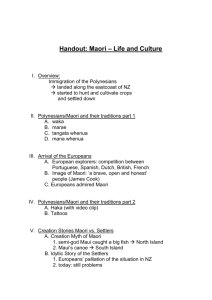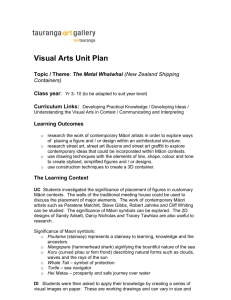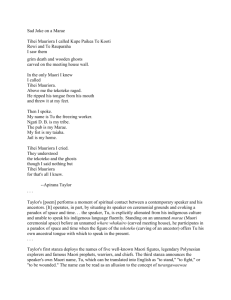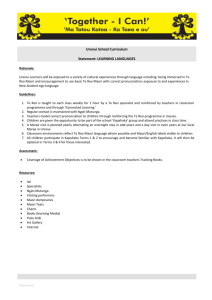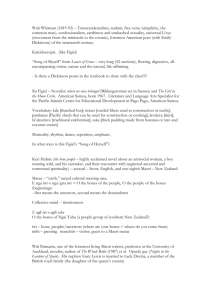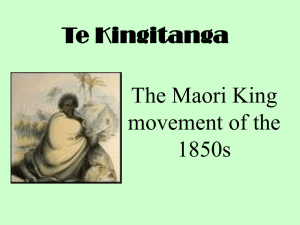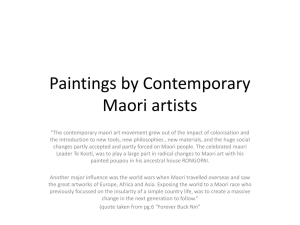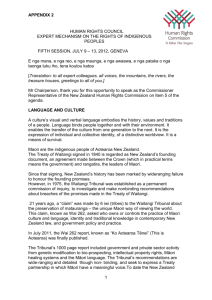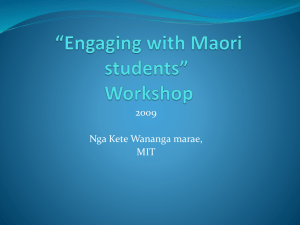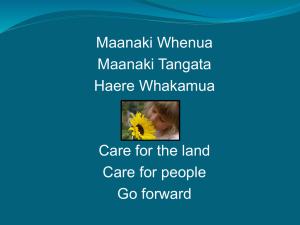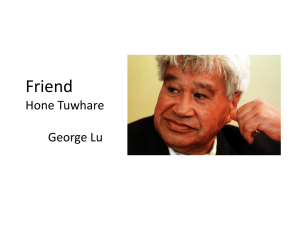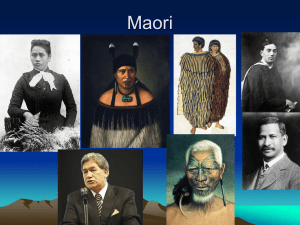Biculturalism in NZ
advertisement
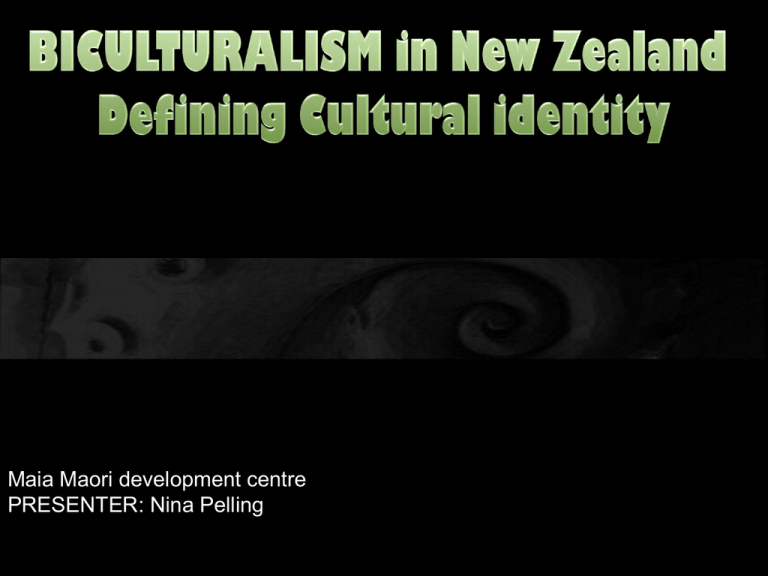
Maia Maori development centre PRESENTER: Nina Pelling What is biculturalism? What are the issues of biculturalism in Aotearoa NZ ? Outline the debate between biculturalism and multiculturalism Biculturalism implies the existence of two distinct cultural groups, usually of unequal status and power, within a society united by one economic and political structure. Bicultural individuals identify with core elements of their own culture as well as the dominant culture. • Bicultural individuals successfully integrate themselves into aspects of both cultures, values, and belief systems. Recognition of tangata whenua status of Aotearoa NZ Set up to remedy the total disregard of TW rights by successive governments Came to light because of what was happening internationally to indigenous rights around the world Response to a growing Maori political assertiveness during the 1970s and 1980s • • Biculturalism became a philosophical framework for policy development across the public sector. Challenged the we are all one people and we all live in racial harmony in NZ ideologies Biculturalism is a way of talking with the Crown and helps mediate between assimilation and self determination which had been the main competing paradigms in Maori relations since the signing of Te Tiriti o Waitangi Appeasement Expurgation Assimilation Termination Domestication Integration Cultural difference Multiculturalism Biculturalism Self Determination Toi te kupu, Toi te mana, Toi te whenua The language lives, the mana is great, the nation is strengthened. Mason Durie 1998 Biculturalism in New Zealand means to many people, giving particular prominence to two main cultures and traditions: Māori culture and the English-speaking Pākehā culture. It stresses the unique position of Māori as the country's indigenous people and as signatories to the Treaty of Waitangi, and also the role of European culture stemming from the British Crown with whom the Treaty was made (Te Iho) HIGH HIGH K N O W L E D G E Pakeha Common ground LOW Bicultural interface (Nakata, M 2008) K N O W L E D G E Maori LOW value meaning principle Rangatiratanga Authority/Responsibility Māori have authority over Māori dimensions Wakaritenga Legitimacy each partner has a legitimate right to be here, to speak freely Kaitiakitanga guardianship clarify responsibility for guardianship Mahi kotahitanga co-operation spirit of generosity and co-operation ngakau mahaaki respect value each partners heritage, customs, current needs and future aspirations I do not want to play down the fact that the universities have produced some of our most strident activists and a number of dissenting voices. In fact the universities are often the place where Maori students can first begin to learn Maori language and history. Also, there do exist within the universities (too few) radical educators who are concerned with creating strategies of resistance, liberation struggles and strategies for ‘decolonising minds (Smith,C.W. 1994 cited Pihama 2001:47). issue of a continuing inability to work with difference? (Trinh Minh-ha 1999) Multiculturalism has been used in many western context to set marginalised people against each other so to avoid the specific issues of each group. Homongenisation of diverse cultural people Multiculturalism masks prejudice. It can reinforce perceptions of Maori as a disadvantaged ethnic minority, yet no different from any other group who is located outside the cultural mainstream (O’ Sullivan,D 2007) In NZ multiculturalism serves as a means to avoid or deny the urgency of the Maori struggle for tino rangatiratanga (self – determination) Social implications of Unitec’s marae The marae is a place for people gather . At Unitec, the marae is also a place to learn and acknowledge diversity amongst people The marae is a place to celebrate cultural identity The marae creates space to be Maori The marae strengthens students and staff E to Matou Matua arr. Philippa Jones | Bellissimo, Whangaparaoa College
